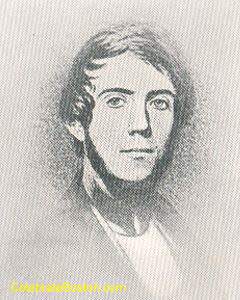 |
Mayor Jonathan Chapman
Served 1840-1842
"Born in Boston, January 23, 1807; died May 25, 1848; served as Mayor during 1840-1842.
At the very outset, Mayor Chapman made a reduction of the city debt his principal object as chief magistrate. He achieved it by securing various retrenchments, but the tax rate was not reduced. The city was not exactly poor, although the debt in eighteen years had risen from $100,000 to more than $1,500,000, for it owned extensive property, much of which had been improved. The current expenses of the city at the time, except those for ordinary purposes and the payment of the city debt, amounted to about $425,000 annually, of which nearly a quarter was charged to the public schools.
Mayor Chapman did not favor the project of a new city hall for which land had been bought, but recommended instead that the old County Court House should be remodeled and serve as a city hall. A new building for the Probate and Registry offices had been completed, and the city government moved into its former quarters in 1841.
The epochal event during Mayor Chapman's administration was the establishment of steam navigation between Boston and Liverpool in 1840. The occurrence was properly celebrated and signalized as a commercial improvement assuring great results. At the same time, the Western Railroad was completed and opened connection to the Hudson river in 1841.
Mayor Chapman was the first head of the Boston city administration who seemed to have been much concerned with the question of licenses for the sale of spirituous liquors. There was a license law in force at the time to which the Mayor was opposed. Indeed, he regarded the licensing system 'as wrong in principle and injurious in effect.' He wished the public peace preserved as well as public proprieties, but as to the use of spirituous liquors, he would leave that to the individual, 'and above all to Washingtonians' [a temperance society of that day]."
